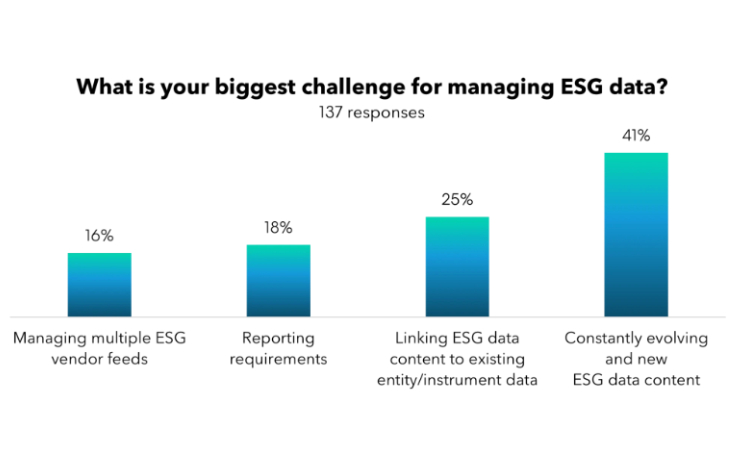Public consultation invited by the ASX Corporate Governance Council on their draft of Corporate Governance Principles & Recommendations has recently closed. Review of submissions will be completed in December and in July 2019 the Council will publish the finalised fourth edition.
Many of the responses focused on the plethora of ESG risks such as cyber security, gender diversity, carbon risk, bribery, corruption, whistleblowing, and social licence to operate. In this post we focus on Principle 7: Recognise and manage risk, what that means for material ESG reporting, and as the ASX termed the approach “if not, why not”.
The four main changes to recommendation 7.4 and commentary provided to the ASX are as follows:
1. Acknowledging that an entity’s social licence to operate can be lost or seriously damaged if the entity conducts its business in a way that is not environmentally or socially responsible
2. Stating that an entity can meet this recommendation by cross referencing reports prepared in accordance with the International IIRC’s Integrated Reporting <IR> Framework or a recognised international sustainability standard
3. Suggesting entities that believe they do not have any material exposure to environmental and social risks consider carefully their basis for that belief and benchmark their disclosures against those made by their peers
4. As recommended in the Senate Economics References Committee report on Climate Risk Disclosure, giving greater guidance on disclosure of carbon risk, including:
a. explaining the different types of climate change risk (physical risks, transition risks and liability risks)
b. noting that many listed entities will be exposed to these types of risks, even where they are not directly involved in mining or consuming fossil fuels
c. suggesting that listed entities with material exposure to climate change risk implement the recommendations of the Financial Stability Board’s Task Force on Climate-related Financial Disclosures. 1
Challenges and implications for Investor Relations
One clear challenge is understanding ESG and associated recognised reporting frameworks. A ‘one size fits all’ approach to ESG doesn’t exist. Best procedures are tailored, using elements of an ESG framework that focuses on materiality. The process of implementing an effective strategy takes over 6 months of planning and needs internal and external engagement to truly achieve an understanding of materiality from the perspective of the board, c-level and existing and potential shareholders.
As previously pointed out in our article “Why ESG responsibilities sit with Investor Relations”
2 a lot of these responsibilities are currently sitting with IR. That these responsibilities should sit with IR can be seen in one recommendation that was put to the ASX regarding principle 6.2: A listed entity should “have”, rather than “design and implement”, an investor relations program that facilities two way communication with investors. To ensure all internal working groups are effective in the strategy piece, ESG programs will need to be driven by IR managers.
UN PRI’s recommendations
Further to ASX submissions, the UN PRI’s recommendations were released on 27 July and also focus on ESG integration and increased transparency for shareholders. They strongly support a range of changes suggested such as ‘Improved company disclosure of environmental and social risks enables investors to make better informed decisions about risk exposure and opportunities in their investment portfolios, and therefore execute their fiduciary duty to act in the best interests of clients and beneficiaries.’ 3
Comments
James Cronan, a partner at ESGI believes, “This is one of the biggest steps in ESG, in an Australian market lagging behind best practice. Increased transparency is very important, but I believe the real opportunity is to open the dialog between the investment community and listed entities. It will take time to set in place the right programs and processes internally, but with the use of existing global ESG reporting frameworks the implementation and auditing process is relatively straightforward. If ASX-listed businesses aren’t putting in place these procedures over the next year, then why not?”
Andrew Nobbs of Designate Group agrees. “Effectively communicating your company’s ESG strategy and narrative can only benefit both the company, employees and their shareholders. All companies need an authentic, consistent and engaging story to underpin their corporate brand and an ESG strategy is key to this.”
“The investor relations function in a listed entity straddles the interface between a business’ operations and its external environment. When granted a strategic mandate and appropriately resourced, it is ideally placed to drive ESG engagement and reporting. ESG thinking is all about effective long term risk management. It is not a communications function, as it is rooted in robust business processes as much as in sound disclosure. Neither should it be confined to legal and compliance, which by necessity must take a narrower and more prescriptive view of risk.
Heads of Investor Relations often face a Herculean task in persuading senior business leaders to invest in best practice ESG frameworks. The costs and benefits of non-financial risks are hard to measure and hard to value, but they are real. Becoming an internal advocate in this area represents a golden opportunity to add value to the business. A good IR manager, like a true friend, will tell their leaders what they need to know, not what they want to hear.” Says Mario Falchoni, a Partner at Reputation Edge and formerly GM of Investor Relations and Corporate Affairs at Spark Infrastructure.
1. https://www.asx.com.au/regulation/corporate-governance-council.htm
2. https://www.esgi.com/single-post/2017/12/18/WHY-ESG-responsibilities-sit-with-Investor-Relations
3. https://www.unpri.org/Uploads/l/j/u/asxcgconsultationjuly_933539.pdf
Contact us to discuss how your organisation can reduce ESG risks, create an effective ESG strategy, reduce their carbon footprint and better manage ESG risk in your supply chain.










